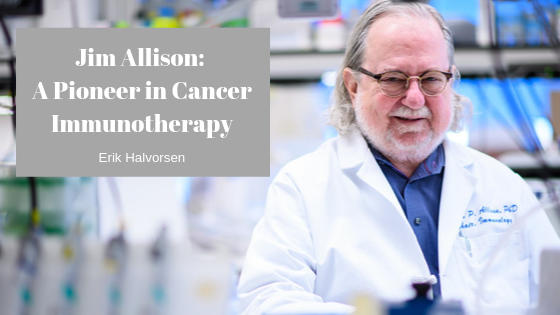Immunotherapy is now one of the four core treatment modalities doctors use to treat cancer. It uses substances to activate or suppress the immune system to help the body fight cancer. Most often, it involves activating the patient’s immune system and/or helping the immune cells target and kill the cancer cells. While it has gotten a lot of attention recently with new treatments being approved and the Nobel Prize being awarded to an MD Anderson researcher for his pioneering work—the idea of boosting or using the immune system to fight cancer is nothing new. . .it just took a lot of time to get here.
The government under President Nixon declared a “war on cancer” as he signed the National Cancer Act of 1971 which brought new funding and resources to accelerate research to find new treatments. The fight against cancer has been a long, exhausting battle, with many losses and a few victories sprinked in along the way. As a high school student who was already enthralled with science and medicine, I remember writing a term paper on “Lymphokine Activated Killer T-Cells.” It was based on work at the NIH from Dr. Steven Rosenberg, which involved removing a patient’s T-cells then incubating them with IL-2 to ramp them up to seek out and kill the cancer cells when re-infused into the body. It was fascinating science and the idea of using the body’s own cells to seek out and destroy the cancer had people very excited that a cure was near. That was in 1985 and my report was printed out on a dot matrix printer.
But as happens often times in the war on cancer, what works in the lab or even in animals does not always translate to clinical success. So, we march on with determination and patience.
A model of this determination and a shining example of a small victory against cancer, is Jim Allison, Ph.D. Dr. Allison, a researcher at the University of Texas MD Anderson, won the Nobel Prize in Physiology and Medicine in 2018 (he shares the award with Tasuku Honjo, M.D., Ph.D., of Japan). Allison, like many of us, has been personally affected by cancer as his mother, brother and uncles have all passed away from the disease.
What grew from a scientific curiosity about how T-cells, one of the key components of our immune systems that hunt and kill germs and cancer cells, eventually leading to a new cancer treatment and wave of excitement around this entire treatment paradigm. Dr. Allison’s decades of research into the pathways to activate T-cells also uncovered co-called checkpoints or breaks that kept T-cells from killing healthy cells. One such checkpoint protein is called CTLA-4 and is found on the surface of these cells. Overexpressed in several forms of cancer, it downregulates the activity of the T-cells making them less effective cancer scavengers and killers. Dr. Allison’s pioneering work led to the development of an antibody to CTLA-4 (Ipilimumab) to prevent the brakes from working and unleash the cancer killing power of the patient’s own T-cells. Ipilimumab was a first-in-class drug (checkpoint inhibitor) approved in 2011 for melanoma—a swift and deadly form of cancer with very few effective treatment options.
Checkpoint inhibitors have become all the rage with the pharma companies—imitation is the finest form of flattery.
In a report from last year, it was estimated that there are ~170 distinct checkpoint inhibitors being evaluated in various combinations and against a number of different cancers totalling ~1,500 clinical trials! While there have been concerns about toxicity and inconsistent response rates, many of the recently approved drugs in this class have shown efficacy in aggressive cancers where patients have shown little response to traditional chemotherapy.
Thanks to the pioneering work of scientists studying the fundamental mechanisms of our immune systems and early hypotheses and attempts to use our own immune system to battle cancer–Dr. Allison was able to bring about this paradigm shifting breakthrough in how we treat cancer and is much deserved in receiving the Nobel Prize.
We know that there is still a great deal to explore in the immunotherapy field. New targets to identify and new mechanisms to uncover as to why some people respond to these treatments and others do not. Dr. Allison’s work proves immunotherapy as a treatment modality is here to stay and will continue to evolve and improve. It offers a ray of hope to many who are, or have loved ones, currently battling cancer.
Erik Halvorsen is the Chief Business & Strategy Officer at FAR Biotech. As a result of his industry experience, Erik is an often sought-after public speaker, and he has served as an advisor to various hospitals and start-ups. He is constantly looking for new ways to improve patients’ lives while changing the broader healthcare industry for the better. He has been referred to as a “translator,” in that he has the ability to speak science with businesspeople and speak business with science people.

